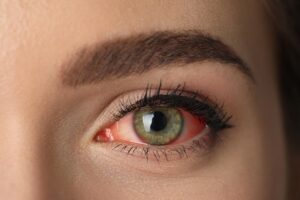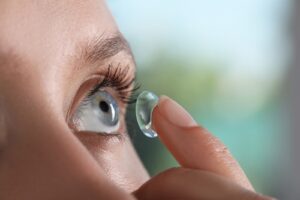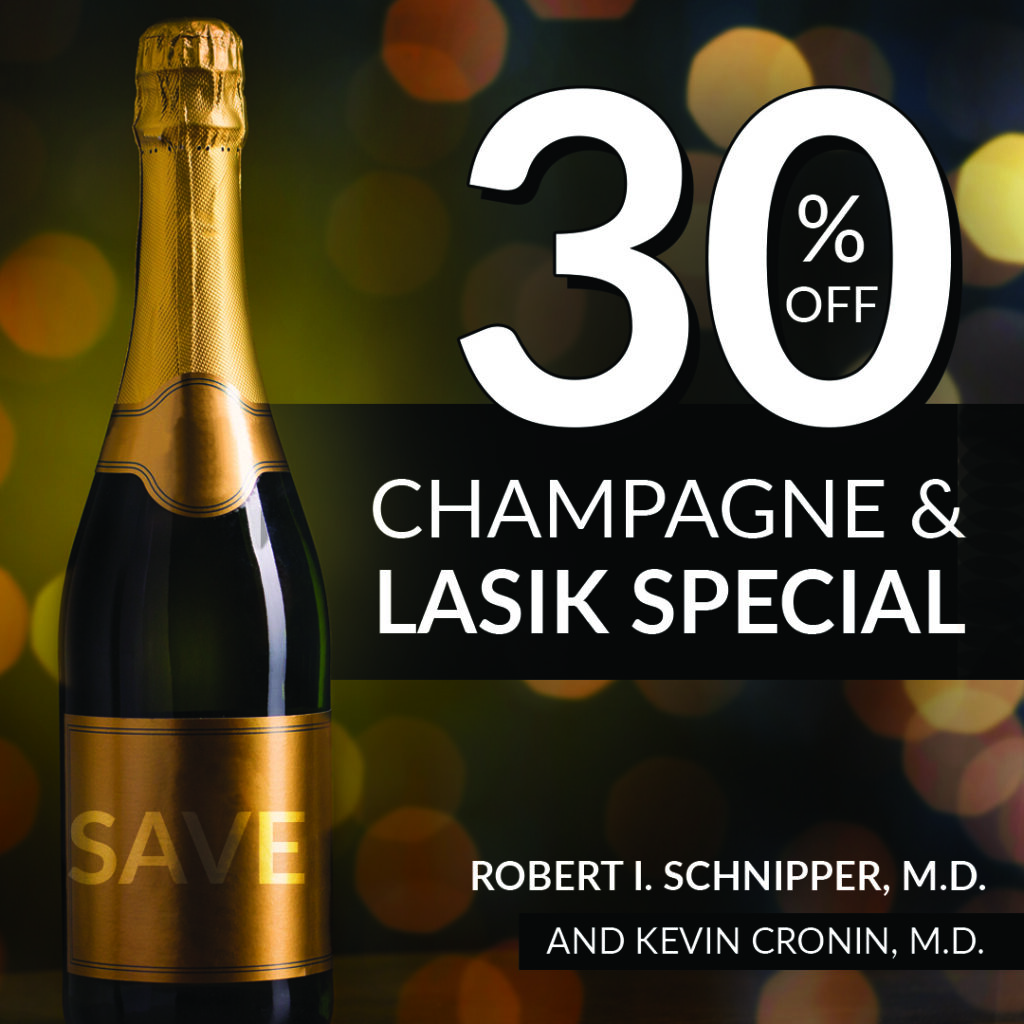Are your eyes dry and red? Do you feel as if something’s constantly in your eye?
You may have dry eye. Dry eye is a common condition that can impact everyday activities, from reading and driving to using your computer and watching TV.
The good news is that you can get your dry eyes under control with the right treatment. But how do you know if it’s time to seek professional help?
Keep reading to learn more about dry eye, its symptoms, and when treatment is necessary!
What is Dry Eye?

You may experience dry eye if you don’t produce sufficient tears or make tears evaporate faster. Dry eye can range from mild discomfort to a chronic condition.
Both women and men can get dry eyes. Common causes of dry eye include:
- Aging
- Contact lens overuse
- Excessive screen time
- Some types of medications
- A dry or windy environment
- Meibomian gland dysfunction
- Blepharitis
- Hormonal changes due to contraceptive use, pregnancy, or menopause
- Medical conditions such as rosacea, rheumatoid arthritis, Sjogren’s syndrome, Graves’ disease, or lupus
The first step in determining the appropriate treatment plan for you will be figuring out what exactly is causing your symptoms.
What are the Symptoms of Dry Eye?
When you have dry eye, you may experience the following symptoms:
- Redness
- Eye fatigue
- Light sensitivity
- Stinging sensation
- Blurred or double vision
- Mucus strings around the eye
- Difficulty wearing contact lenses
- Feeling like something is stuck in the eye
- Increased tearing
If you are experiencing any of these symptoms, schedule an appointment with your eye doctor.
When Should You Seek Dry Eye Treatment?
It’s best to get professional help if you’re experiencing any of the following:
Chronic Dry Eyes
Sometimes, the symptoms of dry eye can linger for more than a few days. Other times, they may disappear only to reappear again.
Prolonged symptoms could be a sign of chronic dry eyes. Symptoms may include extreme dryness, light sensitivity, an ongoing feeling of something in your eye, and constant stinging or burning.

The longer chronic dry eye goes untreated, the worse it becomes. Without treatment, chronic dry eye can significantly impact your quality of life.
Chronic dry eye can make it challenging to perform everyday activities like driving and reading. It can also distract you from your favorite pastimes, making them less enjoyable.
Additionally, chronic dry eye may result in complications such as conjunctivitis, eye inflammation, eye infections, corneal abrasions, sores on the cornea, and cornea damage. Dealing with persistently dry eyes can be stressful.
If your eyes constantly feel dry or your symptoms are severe, it’s best to see an eye doctor. Your eye doctor will determine the underlying cause of your dry eye and provide the right treatment to ensure your vision remains clear, comfortable, and healthy.
Artificial Tears Don’t Work
If your eyes feel dry, over-the-counter artificial tears may resolve your symptoms. Many people find that lubricating eye drops aid with mild dry eye, at least initially.
But sometimes, your eyes may become drier over time despite using these eye drops. When artificial tears are no longer effective or don’t offer sufficient relief, talk to your eye doctor.
They’ll get to the bottom of what’s causing your dry eyes and offer an effective treatment plan to alleviate your symptoms and provide long-term relief.
Changing Your Environment Doesn’t Help
If you suffer from dry eye, your environment may be to blame. As the seasons change and the air gets drier, your eyes can become too dry.
The same is true when blasting the heater or running the AC at home, in the office, or in your car. All these can drastically decrease the moisture in the air, drying out your eyes.
Adding a humidifier, turning down the heater, or increasing the distance between you and a heater or vent can improve dry eyes. Also, aiming the car vents away from your face prevents the hot or cold air from blowing into your eyes, reducing your dry eye symptoms.
If changing your environment doesn’t work, it’s time to see an eye doctor. They’ll get to the root of your dry eye and offer an effective treatment plan to alleviate your symptoms.
You Have Difficulty Wearing Contact Lenses
Contact lenses rest directly on the tear film. While they enhance vision and are safe to wear, they can interfere with the tear film’s ability to properly lubricate the eyes’ surface, causing dryness.

Wearing contacts for over twelve hours per day can also make your eyes feel dry and irritated. Extended wear may disrupt the eye’s natural lubrication, causing discomfort.
The longer you wear contact lenses, the drier your eyes become. Additionally, most contact lenses need moisture to remain comfortable.
As a result, they soak up tears from the eyes’ surface. If your eyes struggle to make adequate tears due to dry eye, contacts can absorb tears, resulting in even less moisture.
This may leave your eyes dehydrated, worsening preexisting dry eye and increasing discomfort when wearing contact lenses. If you rely on contacts to see clearly and are experiencing excessive discomfort and dryness, you should talk to an ophthalmologist.
Your eye doctor will address the underlying cause of your dry eye to allow for improved contact lens wear and eye comfort.
Experience Long-Lasting Relief from Dry Eyes
If you have persistent dry eyes, your expert eye doctor at Jacksonville Eye Center can help. They will determine the underlying cause of your dry eye and provide a customized treatment plan that will bring long-term relief and improve your eye health.
Are you suffering from dry eye? Schedule your appointment at Jacksonville Eye Center in Jacksonville, FL, today! Don’t let dry eye keep you from having clear, comfortable vision.

